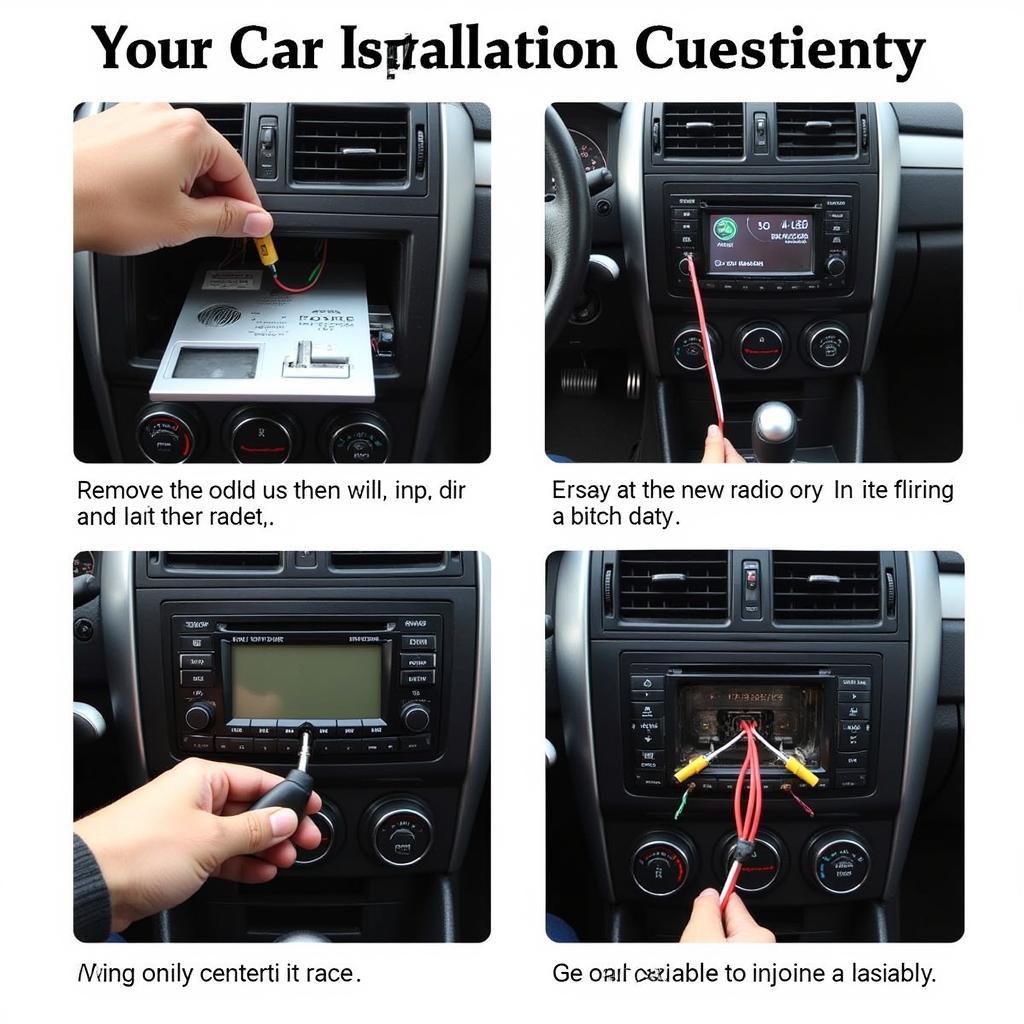Is your car struggling to start? Figuring out if it’s a bad battery vs starter can be tricky. Both components play a crucial role in the starting process, and their failures often present similar symptoms. This article will equip you with the knowledge to diagnose the real culprit behind your car’s starting woes. We’ll explore the key differences between a bad battery and a bad starter, providing clear explanations and practical tips for troubleshooting.
Understanding the Starting System
Before diving into the diagnostics, it’s helpful to grasp how your car’s starting system works. The process involves a coordinated effort between the battery, starter, and ignition switch. The battery provides the initial electrical jolt to power the starter motor. The starter, a powerful electric motor, then engages the engine’s flywheel, cranking it over to initiate the combustion process. Finally, once the engine is running, the alternator takes over, recharging the battery and powering the electrical systems.
Signs of a Bad Battery
A dead battery is a common cause of starting problems. Look for these telltale signs:
- Dim headlights: Headlights that are significantly dimmer than usual, especially when trying to start the car, can indicate a weak battery.
- Slow cranking: The engine cranks slowly and sluggishly, struggling to turn over.
- Clicking sound: A rapid clicking sound when you turn the key often means the battery doesn’t have enough power to engage the starter.
- Electrical issues: Problems with interior lights, radio, or power windows can also suggest a failing battery.
If you notice any of these sign of dead battery, it’s time to test your battery. A simple voltage test with a multimeter can confirm whether it’s holding a sufficient charge.
Symptoms of a Bad Starter
While a bad starter can also prevent your car from starting, its symptoms differ slightly from those of a bad battery. Here’s what to look for:
- Single click or no sound: When you turn the key, you hear a single click, or nothing happens at all. This can indicate a faulty starter solenoid or a seized starter motor.
- Grinding noise: A loud grinding noise when trying to start the car suggests the starter gear is not engaging properly with the flywheel.
- Freewheeling: The starter motor spins freely but doesn’t crank the engine.
- Smoke: Smoke coming from the starter area is a serious sign of a malfunctioning starter and requires immediate attention.
You can sometimes tap on the starter with a hammer or wrench to temporarily get it working if it’s sticking. However, this is only a temporary fix. A more permanent solution requires professional repair or replacement. More information about troubleshooting starting problems can be found at dead battery or starter.
Diagnosing the Problem: Bad Battery vs Bad Starter
Distinguishing between a bad battery vs bad starter requires careful observation. If your car exhibits signs of a weak battery, like dim lights and slow cranking, a battery test is the first step. If the battery tests good, and you hear a single click or grinding noise, the starter is the likely culprit. Sometimes, a bad alternator can cause similar symptoms to a bad battery. Check out our guide on battery vs alternator symptoms for more information.
“A common mistake people make is assuming a clicking sound always means a bad battery. While it often does, a bad starter can also cause a single click,” says John Smith, Senior Automotive Technician at Advanced Auto Repair. “A thorough diagnosis is crucial to avoid unnecessary repairs.”
Testing and Troubleshooting
If you’re comfortable working on your car, you can perform some basic tests. Try jump-starting the car. If it starts, the battery is likely the issue. If not, the problem could be the starter. You can find more insights on diagnosing dead battery and starter problems at signs of dead battery vs starter.
“Always disconnect the negative battery cable before working on any electrical components to prevent shocks and damage,” advises Maria Rodriguez, Electrical Systems Specialist at AutoTech Solutions.
Conclusion
Determining whether you have a bad battery vs starter can save you time and money. By understanding the symptoms and performing some simple tests, you can pinpoint the source of the problem and take appropriate action. Don’t let a starting issue keep you off the road. Equip yourself with the right knowledge, and get your car back in running order.
FAQ
- Can a bad battery damage the starter? Yes, a consistently low-charged battery can put extra strain on the starter, shortening its lifespan.
- How long does a car starter last? A starter can last anywhere from 5 to 10 years or longer, depending on usage and driving conditions.
- How much does it cost to replace a car battery? A new car battery typically costs between $100 and $300.
- How much does it cost to replace a starter? Starter replacement costs can range from $200 to $800, depending on the make and model of your car.
- Can I drive with a bad starter? No, you cannot drive with a bad starter. The starter is essential for starting the engine.
- Can a bad alternator cause starting problems? Yes, a faulty alternator can drain the battery, leading to starting difficulties.
- How can I prevent starting problems? Regular battery and starter checks, along with proper maintenance, can help prevent starting problems.

